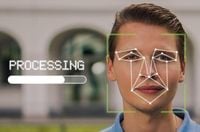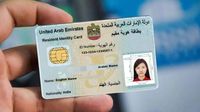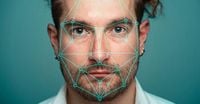The United Arab Emirates (UAE) is set to revolutionize its identification system by launching a next-generation digital identity solution that will eliminate the need for physical Emirates ID cards. This initiative, which is expected to be fully implemented within the next year, will utilize advanced facial recognition and biometric authentication technologies, enabling seamless access to various government and private sector services.
The announcement was made during a recent session of the Federal National Council (FNC), where Dr. Adnan Hamad Al Hammadi, a member of the council, raised concerns about the ongoing reliance on physical ID cards despite significant advancements in the country’s digital transformation. He noted that hospitals, banks, and hotels still require the original Emirates ID to complete transactions, which undermines the effectiveness of the digital service delivery system.
In response to Dr. Al Hammadi's inquiry, Abdul Rahman Al Owais, the Minister of Health and Prevention and Minister of State for FNC Affairs, confirmed that the Federal Authority for Identity, Citizenship, Customs and Port Security (ICP) has already integrated digital ID services into numerous government platforms. The ICP is now focused on the full-scale deployment of a unified biometric system that includes facial recognition technology, which will be accessible through the Authority's smart application.
“Digital identity is not just a tool — it’s a gateway to better services, stronger security, and greater convenience for everyone,” the Authority stated, emphasizing that the new system is designed to enhance security, improve accuracy, and streamline service delivery across sectors such as healthcare, banking, telecommunications, hospitality, and insurance.
The biometric ID initiative is part of a broader strategic framework unveiled in August 2024 under the "Government Bureaucracy Elimination Plan." This plan includes the "Month of Eliminating Government Bureaucracy" campaign, which aims to engage both government employees and the public in identifying and eliminating inefficiencies in service delivery. Events were held across all Emirates to gather citizen feedback and spark innovation.
To further incentivize change, the ICP launched the Bureaucracy Elimination Award, open to employees, users, and partners, inviting ideas that streamline procedures and enhance service efficiency. This initiative reflects the UAE's commitment to fostering a culture of innovation within the government sector.
The phased roll-out of the new digital identity system will begin with the digitization of simpler services, followed by the integration of more complex platforms. The Authority aims to ensure a smooth transition that maximizes benefits for users while maintaining compliance with national data protection laws and risk management protocols.
As part of this transformation, the ICP is collaborating with strategic partners to develop and test advanced biometric identification systems that do not require traditional ID cards. This collaboration is crucial for the successful adoption of these technologies across various sectors.
In a statement, Dr. Al Hammadi highlighted the urgency of the situation, stating, “There is an urgent need for fast, effective solutions to streamline identity verification in these essential sectors.”
The UAE has made remarkable progress in digital governance, ranking first in the Arab world and 13th globally in digital government development. This upcoming transformation is expected to further enhance the country's reputation as a leader in smart governance and digital services.
With the introduction of biometric ID systems, the UAE is not only reinforcing its long-term vision of delivering transparent and efficient governance but also simplifying the lives of its citizens, residents, and visitors. The integration of these advanced technologies is a significant step towards a more secure and user-friendly digital ecosystem.
As the country prepares for this significant shift, residents are encouraged to stay informed about updates regarding the new digital identity system. For now, however, it’s advisable to keep that Emirates ID handy until the full transition is complete.
The Federal Authority for Identity, Citizenship, Customs and Port Security is committed to ensuring that the new biometric ID systems meet high standards of technical and procedural verification while complying with national data protection laws. The authority’s proactive approach aims to build trust among users and maintain the benefits of its smart services.
In summary, the UAE's upcoming digital identity system marks a pivotal moment in the nation's digital transformation journey. With a focus on enhancing customer experience and streamlining identification processes, this initiative is set to redefine how residents and visitors access essential services in the UAE.









